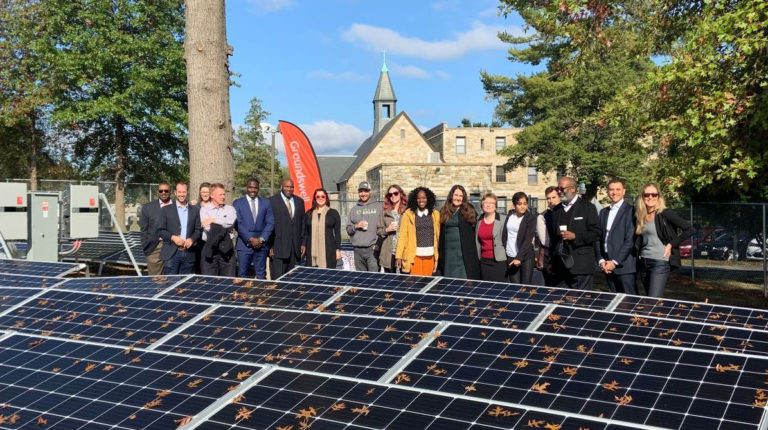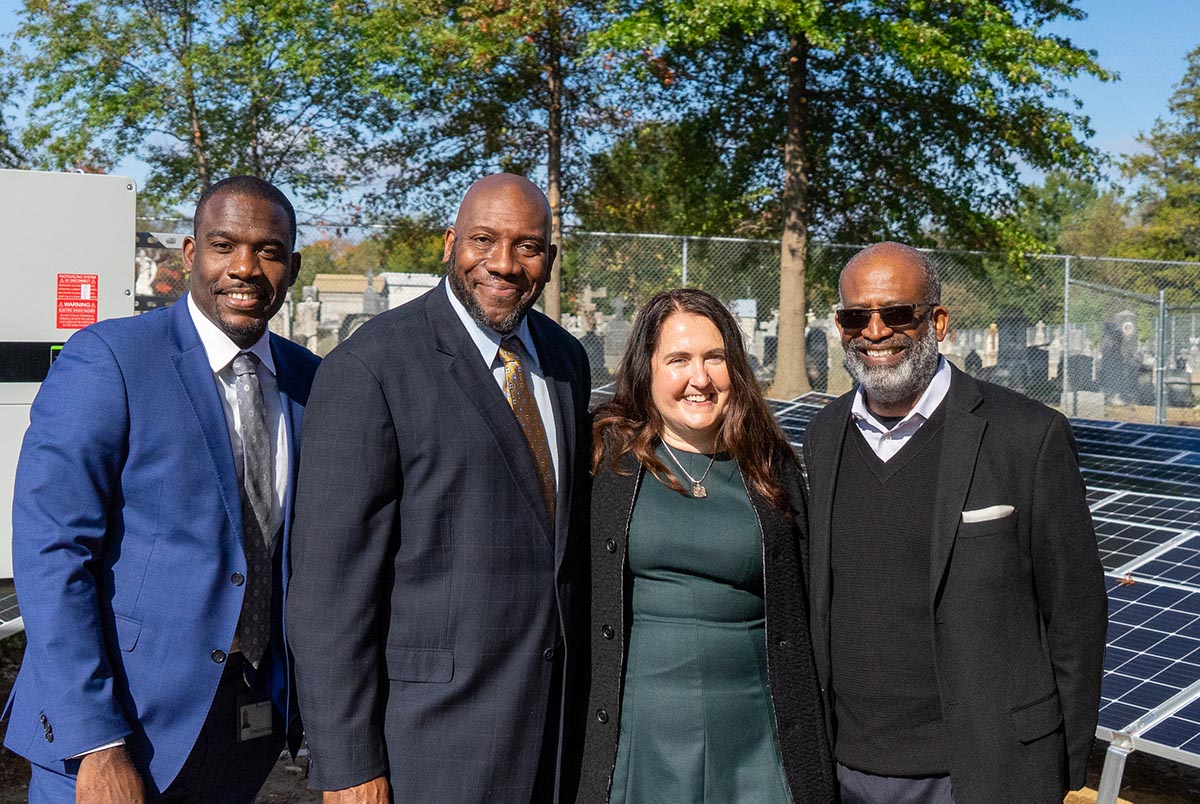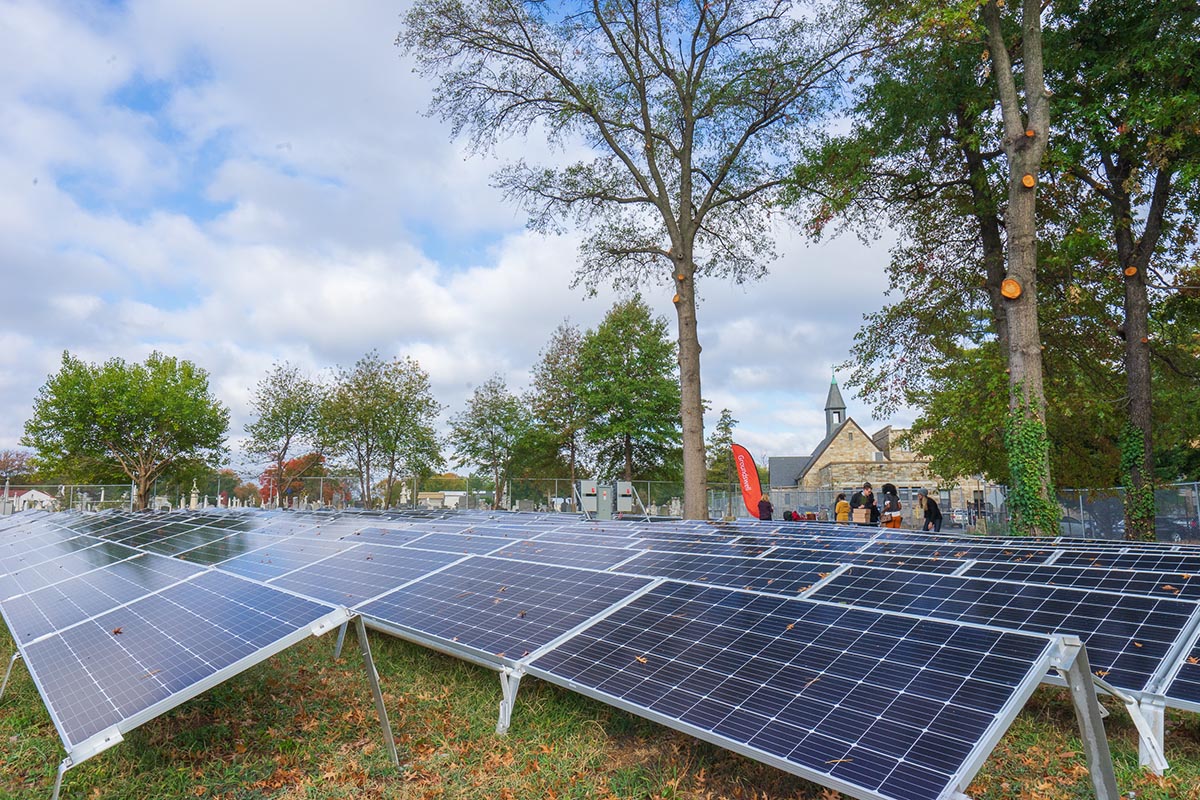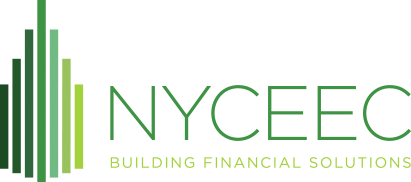Deal Spotlight
DC Houses Of Worship Leading a New Solar Movement
0
kWh
Projected lifetime energy production
0
Mtons
Lifetime GHG savings

The Building
Building type
Institutional
Building profile
4 houses of worship
Location
Washington, DC
Project type
Solar PV
NYCEEC loan product
Equipment loan
Term
5.5 years
Closing date
March 2020



The Project
Sunlight General Capital, a solar developer and investor, owns and operates solar PV projects on properties owned by four separate houses of worship in Washington, DC. Each of the four sites is in or serves low- to moderate-income (LMI) communities.
Sunlight General installed roof-mounted solar PV arrays for three of the projects – Israel Baptist Church, Embassy Church and Religious Society of the Sacred Heart.
For the fourth project, Sunlight General installed a ground-mounted community solar array at the Monastery of Our Lady of Mt. Carmel, the home of the Washington Province of Discalced Carmelite Friars. Unlike the rooftop projects, the solar energy generated here is distributed to local households through community solar subscriptions. By using an innovative model created by Groundswell, a 501(c)3 non-profit that develops community solar projects and programs for underserved communities, 25% of the site’s capacity is allocated to income-qualified (LMI) households to provide deep utility bill savings. As the sole lender for the project, the NYCEEC loan paid for project construction costs across the four sites.
Total Project Cost
$1,303,570
Sponsor and Tax Equity
$619,570
NYCEEC Loan
$684,000
Simple Payback Period
6.8 years
The Results
As a result of these four solar installations, each community of faith is able to monetize their rooftop or unused property. The total installed capacity will generate 427 kW of power. This new energy source will reduce monthly utility costs, share power with local residents through community solar subscriptions, deliver deep utility bill discounts to income-qualified households, support the District’s climate and energy equity goals, and make each location more resilient.
